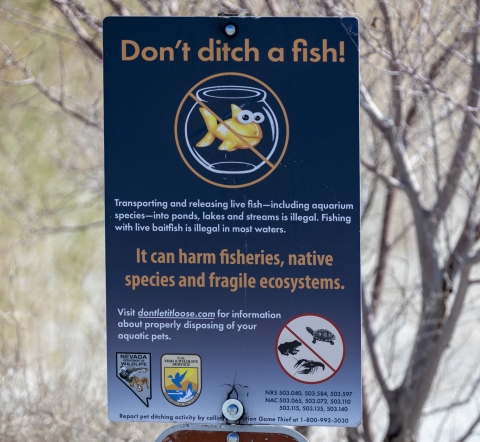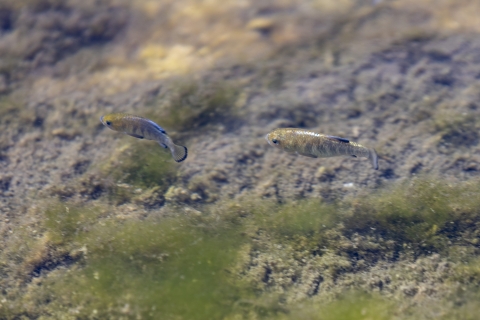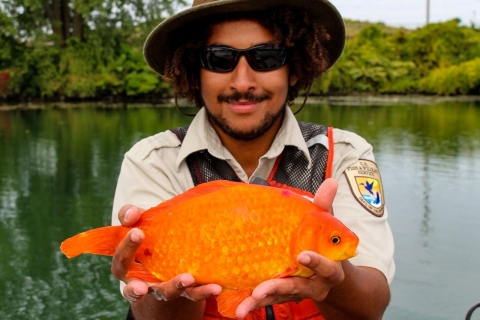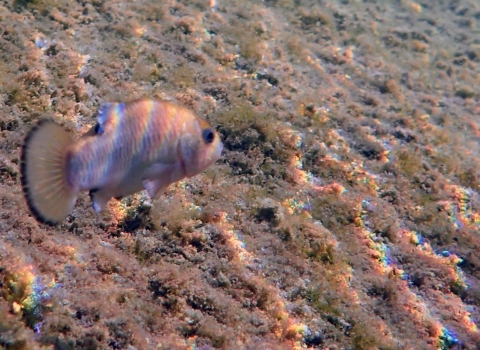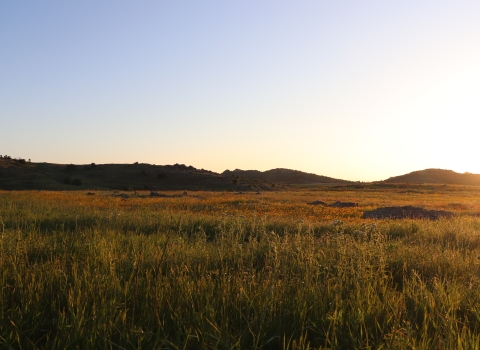Natural springs are breathtakingly beautiful and fragile ecosystems that exist in harmony with their surroundings, and support diverse flora and fauna. However, the introduction of non-native species, such as pet fish, can have grave repercussions on these delicate habitats.
“Here at Ash Meadows, we have historically had a problem with people dumping their pet fish,” said Mike Bower, Ash Meadows National Wildlife Refuge manager. “I would love to share with the public that even though releasing their pets into the wild comes from a good place in their heart, trying to do what is right by their pet– releasing non-native pets wreaks havoc for our native species when they become established in these ecosystems.
“We have such high rates of endemism that we have species that live nowhere else in the world, and they don't have anywhere else to live. There are no analog systems or habitats for our endemic species to relocate. So, we want to ensure that people understand the implications of introducing non-native animals here at Ash Meadows.”
Natural springs have evolved over time to sustain a delicate balance amongst the various species that coexist within them. Pet fish that are released into natural springs can outcompete local species for resources such as food, habitat and breeding space. Non-native fish can grow rapidly and reproduce at high rates, leading to exponential population growth that negatively impact the local aquatic community. This competition often results in native fish populations declining rapidly or even facing extinction, disrupting the natural food chain and impacting other organisms dependent on them for sustenance.
“Besides pet fish, aquatic hitchhikers commonly found in aquariums, such as snails or other aquatic invertebrates, can present a major issue. Once established, these organisms can change the ecosystem from the bottom up,” said Ambre Chaudoin, a fish biologist at the refuge. “Effects can range from direct impacts to algae and native invertebrate communities to altering nutrient cycling, further affecting native fish and the food community on which they depend.”
The Ash Meadows Amargosa pupfish is endemic to many of the springs and associated marsh habitats of Ash Meadows. This species is quite adaptable, able to thrive in habitats ranging from large spring pools to small seeps and seasonal marshes. In these springs the pupfish is the dominate predator with no defensive mechanism to save it when it encounters a non-native fish, such as the invasive green sunfish.
“None of our native spring fishes have evolved with predators, so they don’t possess those survival skills required to avoid predation or even compete very well for food resources,” said Chaudoin. “I have witnessed pupfish swimming up to crayfish and bullfrogs without any sense of danger or inclination they’re about to become lunch. The western mosquitofish and sailfin molly are smaller invasive fishes ubiquitous on the refuge; they are known predators of fish eggs and larvae. We don’t really have a good sense how they are impacting our native fishes through predation on these earlier life stages.”
The dumping of pet fish and other species into natural springs can have profound and irreversible consequences on these fragile ecosystems. From praying on the fish to out competing them for resources, releasing pet fish into ponds, lakes, streams and springs is not just a bad idea, it is illegal. Visit www.dontletitloose.com for information about how to properly disposing of your aquatic pets.

